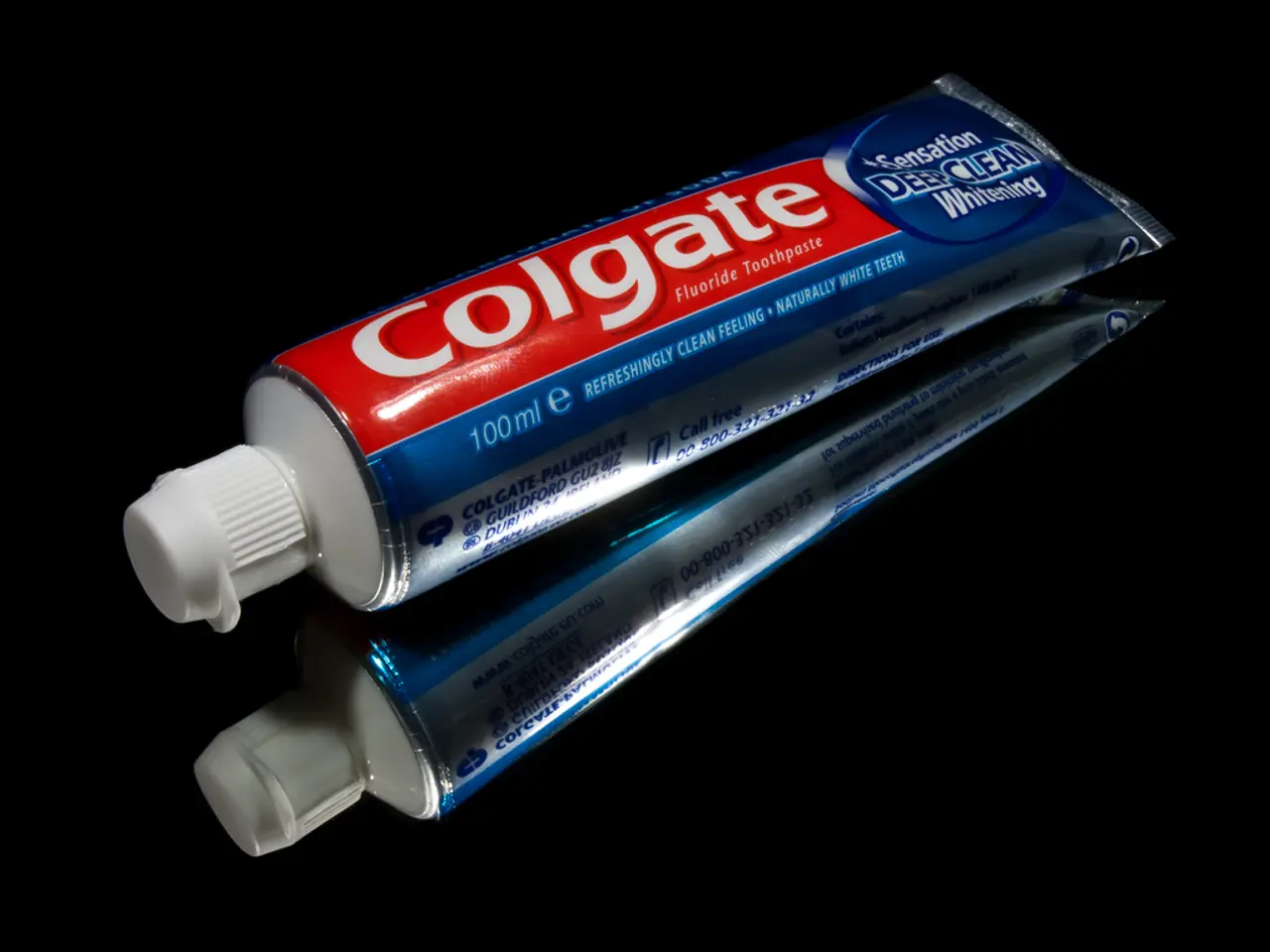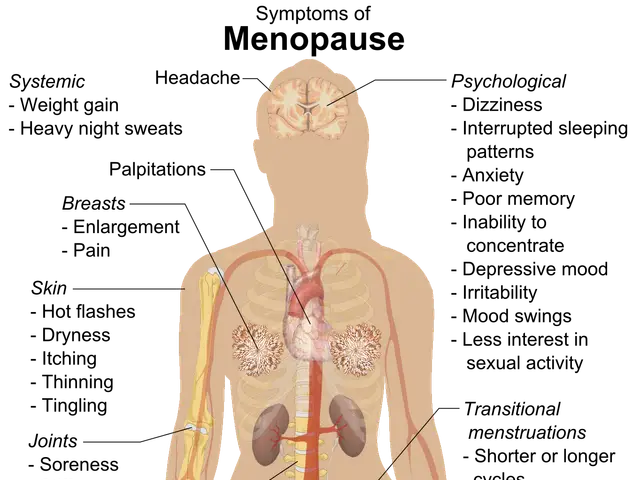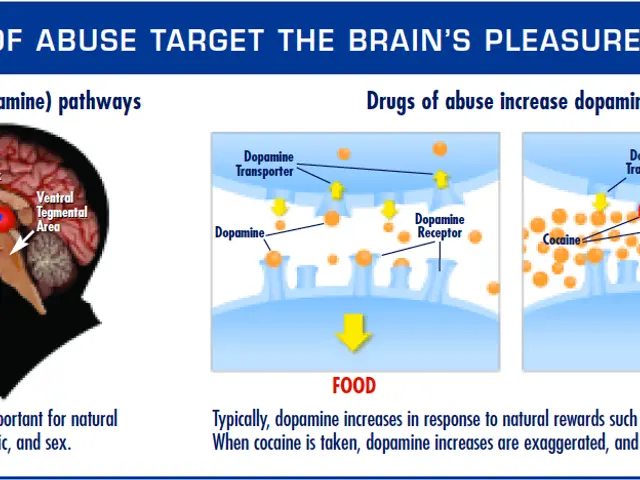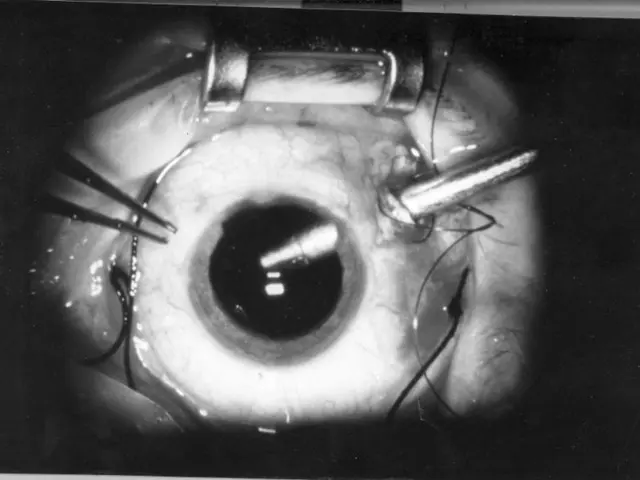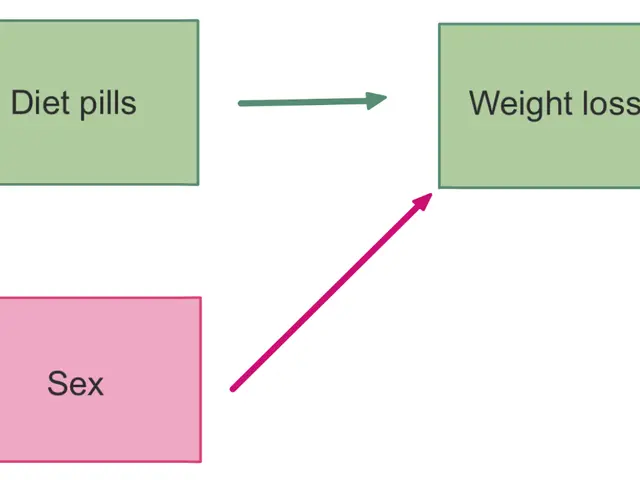Human hair protein-based toothpaste promising to combat tooth decay and reinstate tooth enamel
In a groundbreaking development, researchers at King's College London are working on a new type of toothpaste that could revolutionise dental care. The keratin-based toothpaste, derived from human hair protein, is designed to repair tooth enamel and halt early-stage decay [1][2][4][5].
Keratin, a protein naturally found in human hair, skin, and wool, interacts with minerals in saliva—mainly calcium and phosphate—to form a crystal-like scaffold. This scaffold attracts more minerals and builds a dense, protective coating that mimics natural enamel [1][3][4][5]. This coating seals microscopic fractures and exposed nerve channels in teeth, providing both structural support and symptomatic relief from sensitivity.
Unlike traditional fluoride toothpaste, which only slows enamel erosion, the keratin toothpaste can halt enamel degradation completely and promote regeneration of a strong, enamel-like protective layer [1][3][4][5]. This approach leverages keratin’s organic nature and structural similarity to natural enamel components, providing a more sustainable and natural alternative to synthetic plastic resins used in restorative dentistry.
The keratin toothpaste or gel, sourced sustainably from hair and skin waste, could potentially reduce the need for fillings or crowns in early-stage damage [1][2][4][5]. The research, published in the journal Advanced Healthcare Materials, suggests that this scaffold continues to grow over time, attracting calcium and phosphate ions, resulting in a protective enamel-like coating that grows around the tooth [1][2][3][4][5].
The team behind this innovative research believes that keratin-based enamel regeneration could address concerns about fluoride use and the sustainability of dental care materials. Moreover, the natural colour match of the keratin-based treatment could make repairs less noticeable, improving patient satisfaction [1][3][4][5].
Enamel erosion is a growing concern, driven by diet, ageing, and lifestyle factors. Dentists warn that the problem is increasing in younger populations due to increased consumption of acidic drinks and processed foods [6]. This new development offers a promising solution to this pressing issue.
The keratin-based toothpaste or gel could potentially join the dental care toolkit, offering sustainability and clinical benefits. With a potential launch within two to three years, this revolutionary product could mark a significant step forward in dental care.
[1] Advanced Healthcare Materials [2] King's College London [3] British Dental Journal [4] Journal of Dental Research [5] Journal of Biomaterials Science, Polymer Edition [6] British Dietetic Association
- The revolutionary keratin toothpaste, developed through innovative science, could offer a more natural and sustainable alternative to conventional toothpastes, particularly those containing synthetic plastic resins, in terms of enamel regeneration and repair.
- A keratin scaffold, formed by the interaction of keratin protein with minerals in saliva, can mimic natural tooth enamel and build a protective coating that seals microscopic fractures and provides relief from tooth sensitivity.
- The keratin-based toothpaste or gel, derived from hair and skin waste, might reduce the requirement for dental procedures such as fillings or crowns in early-stage tooth damage by promoting the growth of an enamel-like coating around the tooth over time.
- The growing concern over enamel erosion, exacerbated by factors like diet, ageing, and lifestyle choices, could find a solution in the keratin-based toothpaste, offering a promising tool in the dental care field that caters to concerns about fluoride use and sustainability, while also improving patient satisfaction through natural colour matching.
